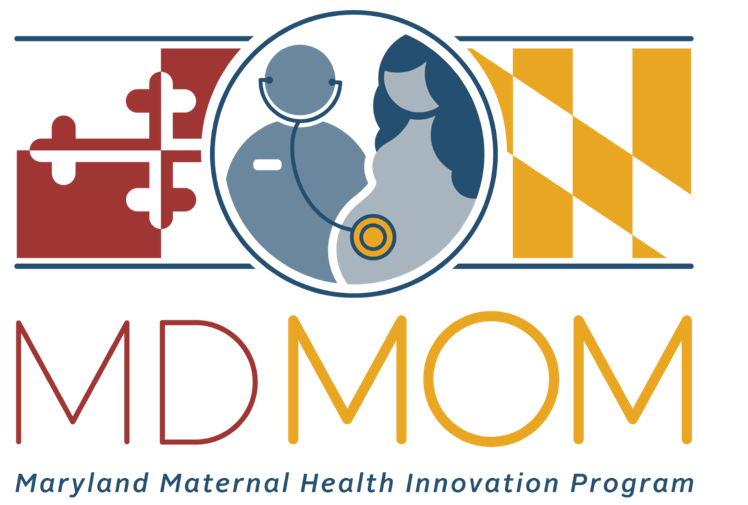MDMOM and MPSC
Maryland Perinatal Debriefing Initiative
“Health care providers are often “second victims” of traumatic childbirth events and should be adequately supported by their organization to alleviate occupational stress and burnout”~ Shorey & Wong, 2022
Healthcare providers are regularly exposed to trauma in the workplace. Although leaders cannot eliminate trauma, they can be sensitive to the trauma their staff experiences. Leaders can mitigate workplace trauma by building healthy work environments and organizational cultures that promote personal connections, foster trust, and authenticity, and prioritize rest. Creating work environments where individuals feel safe promotes workforce retention, staff morale, and a culture of safety.
Rates of severe maternal morbidity and mortality have been increasing. Perinatal nurses and providers are significantly impacted by these events, and require support, yet may be unprepared or unaware of how to access resources for support. Debriefing as a team after an adverse event to identify opportunities to improve has been highlighted by organizations such as the Alliance of Innovation in Maternal Health and The Joint Commission as critical to improving perinatal safety. Yet many of those who lead debriefs have not been formally trained and formal workflows do not exist to connect perinatal clinicians in need of mental health support to more formalized support programs. Debriefing practices can be used after serious events to identify opportunities for improvement as well as to provide support to all of those involved.
The MPSC, through a grant from MDMOM, invites perinatal units at birthing hospitals across Maryland to participate in an 18-month initiative to support organizations in identifying gaps in perinatal debriefing that may impact their ability to make meaningful improvements and support perinatal nurses and providers after severe events.
Each participating organization will name one to three perinatal nurses and provider leaders as debriefing site champions. Site champions will participate in a one-hour focus group and complete an intake survey as part of gap analysis to better understand the current state of debriefing on perinatal units across the state.
Site champions will be trained in best practices in debriefing so that they can teach others to lead debriefs on their unit. This train-the-trainer approach aims to support the widespread and standardized implementation of debriefing after severe maternal and neonatal events, foster psychological safety unit safety culture and normalize access to and utilization of available resources for emotional support.
Recognize the gap in available resources in this space, the impact on quality and safety and the need for nurse and provider support after a severe perinatal event this initiative was created. The aim of this initiative is to provide perinatal leaders at participating organizations with education and training and support in creating a structured plan to ensure the standardized implementation of debriefing after a severe perinatal event.
Participating organizations will:
- Evaluate the current state of perinatal debriefing on their units.
- Provide education on best practices in debriefing to those who lead perinatal debriefs at participating organizations.
- Create an organization specific list of resources for emotional support available for nurses and providers.
- Develop tools to support the implementation of a comprehensive periantal debriefing program.
- Strengthen unit-based workflows to ensure the standardized implementation of debriefing after adverse perinatal events and to ensure opportunities to improve perinatal quality and safety or identified and actioned.
- Normalize the importance of accessing emotional support to strengthen resilience and prevent burnout and compassion fatigue on their unit.
MDMOM/MPSC Maryland Perinatal Debriefing Initiative. Each participating organization will designate 1 to 3 debriefing champions to participate in training and lead the implementation of a standardized perinatal debriefing program at their site. The debriefing champion will be asked to
- Complete a short electronic survey to assess the current state of debriefing at your site.
- Attend a 1–2-hour virtual focus group in Fall of 2024.
- Attend monthly office hours (Jan -March 2025) to ensure organizational readiness to implement debriefing.
- Attend a full-day in-person debriefing training March 20th, 2025, at the Maryland Patient Safety Center.
- Implement and evaluate a new debriefing workflow between Spring 2025 and 2026 on your unit using the standardized debriefing tools provided.
- Attend virtual monthly 1-hour implementation meeting or educational webinars (April 2025-August 2026).
This training was developed as part of the Maryland Maternal Health Innovation program (MDMOM) funded by the Health Resources and Services Administration. The MDMOM program is a collaboration between the Johns Hopkins University, the Maryland Department of Health, and the Maryland Patient Safety Center.
This training is supported by the Health Resources and Services Administration (HRSA) of the U.S. Department of Health and Human Services (HHS) as part of an award totaling $1,500,000 with 0% financed with non-governmental sources. The contents do not necessarily represent the official views of, nor an endorsement, by HRSA, HHS, or the U.S. Government.
